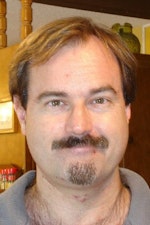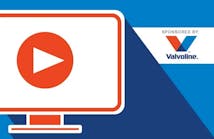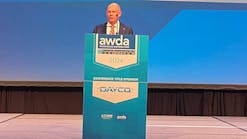As most movie goers know, sequels generally aren’t as good the originals. But occasionally they’re as good as or even better — Terminator 2, Star Trek 2, Godfather 2. In the case of Greg’s Too Car Care Center, it was a repair shop surpassing the owner’s original garage in Fort Smith, Arkansas.
“I first had Greg’s Exxon about 1987, a gas station with a car wash,” explains namesake Greg Whitsitt. “Back then there wasn’t a whole lot of money in selling fuel, so we were thinking about others things we could do. About 1989-90 we started looking for another location [to do these], and ended up renting a large kind of warehouse about a half mile down the street from the gas station. We called it Greg’s Too.”
With more room for repairs, Whitsitt would need more parts. For this he turned to the Parts Plus network, represented locally by Tri State Industries, “the organization that we deal with the most, who gives us the best prices and quality,” he confirms. “(While) some suppliers have lifetime warranties on their parts, people don’t want to replace things over and over. The parts Tri State supplies me are usually the better products and don’t wear out as fast.
“We service many large fleets,” Whitsitt continues, “for example FED EX, United States Postal Service, Fort Smith EMS, United Blood Services, and many more. Tri State Industries and the Parts Plus network are very good at supplying parts for many of the medium duty and fleet-type vehicles, easily making (these organizations) my first-call supplier.
“Tri-State also is useful in supplying ongoing educational programs that make my shop more proficient in offering the most up to date information and repair procedures,” Whitsitt explains. “(And) when you talk about labor claims and labor warranties in this industry, Parts Plus has a program where they give us the opportunity to file labor claims of up to eight a year, and that’s more than what most of the other parts suppliers do.
“They also have incentive and cash-back programs,” he adds. “They actually have a lot of programs I don’t even use: discounts through some of the uniform laundering services, discounts on rental cars, all sorts of things.”
Eventually Exxon would leave the state of Arkansas and Whitsitt would consolidate his business into his current location on Phoenix Avenue, but he kept the Greg’s Too name because, “well, it’s kind of catchy,” he noted.
By this point his staff had grown from the three or four he had manning the gas station/car wash to around 20. Nine of those are technicians, among them two Master Techs and one Master Tech “L,” a certification one step above Master Tech. “The ‘L’ rating involves more catalytic and emissions testing, as well as rebuilding transmissions,” Whitsitt explains.
“If you want to make your shop progress, independents pretty much have to be able to work on any make or model. We do domestics; Asian makes; 80% of anything that could happen to a Mercedes, BMW, Audi. We have Land Rovers; we ever have a couple customers with Ferraris and Maseratis. In a nutshell, we try to accommodate pretty every make and model there is.”
Greg’s Too also works on tractors, 4-wheelers, boats, lawnmowers — “if you’re a regular customer we pretty much work on anything you have,” says Whitsitt. “We also have a couple technicians who specialize in [pickup truck] diesels. We shy away from boats a little bit because marine engines are so different from automotive engines.”
Each technician is assigned a lift with an adjacent bay so that they can have one vehicle on the ground with another on the lift. At capacity they can work on upwards of 18-20 cars at a time. “And I have a shop manager whose job is to make sure all of those technicians out there have something to do,” Whitsitt notes.
“I don’t believe in flat rate, I don’t believe in commission; my shop is totally hourly. When you pay an employee a good hourly wage, let them work a little bit of overtime, the end result is I think they have a more solid, regular paycheck than people who are on commission. It’s worked out for me for a long time.”
Around 1997 Whitsitt decided to “take the plunge” and got into the wrecker business. “Our first wrecker was like a 1996 Chevy 1-ton. We’ve progressed to the point where we have eight vehicles dedicated to roadside assistance: five wreckers, two service vehicles, and one off-road recovery vehicle.”
With the wreckers came stronger ties to the American Automobile Association, making them the AAA provider for the entire area says Whitsitt. “As far as being a profit center, or a percentage of overall retail sales, I would guess our wreckers generate at least 30-35% of the retail intake.
“Insurance-wise, police department-wise, we are on absolutely every rotation list in this area,” he said, citing state, county and municipal law enforcement agencies. “And once we get those vehicles to our shop, we store them for the police, the insurance companies, or the customer till they decide what they’re going to do.
“So if you consider the income off the wreckers themselves, the storage fees, and the fact that you don’t have to pay another wrecker company to do it for you, (recovery and repair) work remarkably well together.”
Then there’s one aspect of recovery that’s uniquely their own: off road.
“AAA has ERS, emergency roadside service, but they don’t cover you at all when you get stuck in a mud hole while out 4-wheeling,” Whitsitt points out. “In this part of the country there are a lot of mountains, lakes and streams; people get stuck doing silly things, and I’m about the only one in Fort Smith that will do an off road recovery.”
Hence the aforementioned off-road recovery vehicle: a lighter-weight truck platform with 4-wheel drive, limited-locking differentials, and a 16,000 lb. winch on the front, designed to go where heavier, bulkier conventional wreckers can’t.
And just like his off-road efforts, Whitsitt attempts to reach out to customers on a more personal level with his staff. “I’ve been to many other shops, and one of the things I’ve noticed in my 37 years of doing this is that service writers are completely displaced from the customers,” he explains.
“You can communicate a lot better with the customer right in front of you; and if they see you ordering their part, see you trying to beat people up for a better price, see you talking about labor, that makes the customer a lot more comfortable about being there in the first place, and they’ll visit with us. It just seems to work.”
And if it works at Greg’s Too, it should work for you, too.



